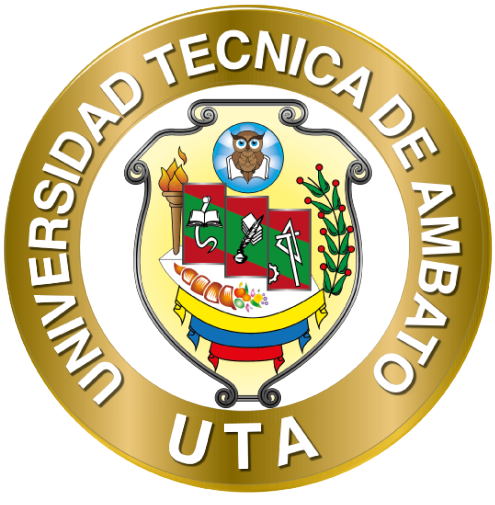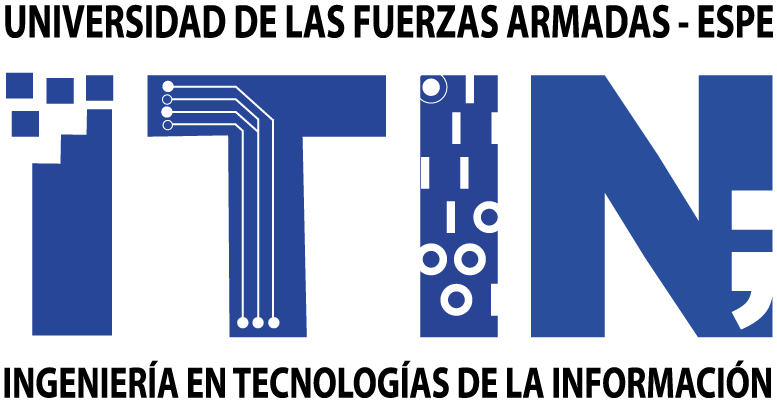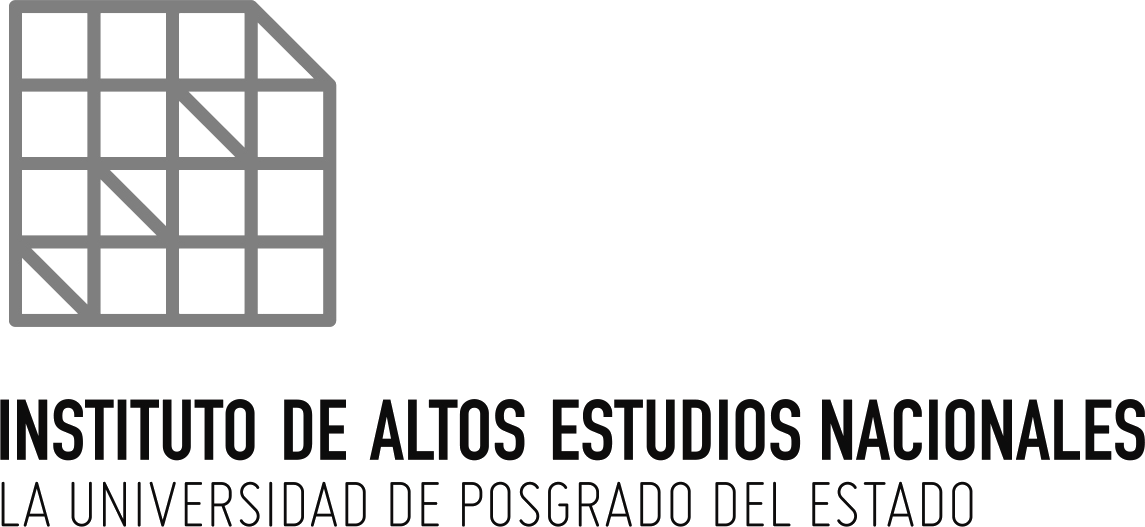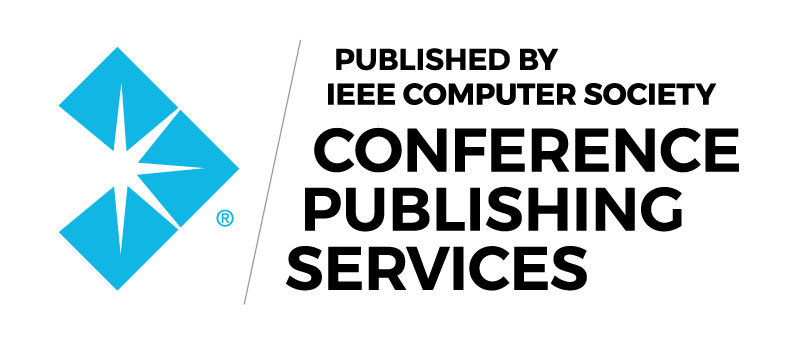Speakers - ICI2ST2021
Sergio Luján
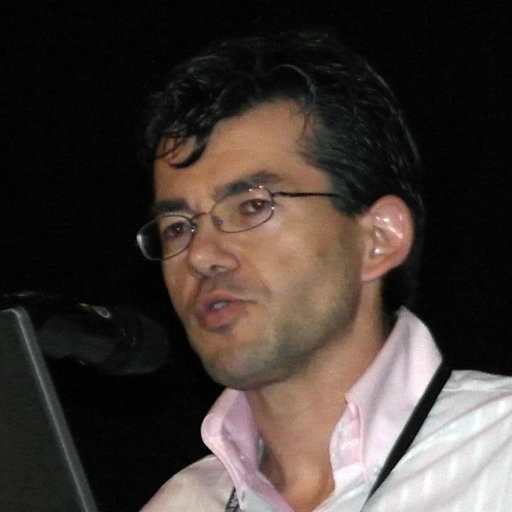
Conference theme:
Main Web accessibility problems and solutions
Abstract:
Although the right of people with disabilities to information and social participation is recognized by most countries through the ratification of the Convention on the Rights of Persons with Disabilities (CRPD), the reality is that much remains to be done to achieve an inclusive society at all levels. In the Article 21 – Freedom of expression and opinion, and access to information, it is stated that governments should urge “private entities that provide services to the general public, including through the Internet, to provide information and services in accessible and usable formats for persons with disabilities”. Unfortunately, too many websites are still published that fail to comply the international web accessibility standards and are designed with little consideration for the needs of the people with disability.
In February 2019 and February 2020, WebAIM, one of the leading providers of web accessibility expertise internationally, conducted an accessibility evaluation of the home pages for the top 1,000,000 web sites and over 100,000 additional interior site pages from within the top 1,300 sites (up to 100 pages each). The results revealed the current state of web accessibility and spotlighted the greatest opportunities for improvement. Even though the study focused only on automatically detectable web accessibility issues, 97.8% of home pages exhibited Web Content Accessibility Guidelines 2.0 failures in February 2019, whereas 98.1% in February 2020. In addition, the number of errors per page increased 2.1% between February 2019 and February 2020. Therefore, the current state of web accessibility is, as WebAIM put it, “…a rather dismal picture of the current state of web accessibility for individuals with disabilities” and continues to be a daily challenge for the people with disabilities.
In this talk, the main web accessibility problems detected in the study of WebAIM and in other similar studies will be shown. In addition, current and future solutions for the main web accessibility problems will be also discussed.
Speaker biography:
Sergio Luján-Mora is Associate Professor of the Department of Software and Computing Systems at the University of Alicante in Spain. He has published several research papers at various conferences (ER, UML, DOLAP) and high-impact journals (DKE, JCS, JDBM, JIS, JUCS and UAIS), both nationally and internationally. He has also published several books related to programming, web development, data structure programming and C++ language. His main research topics include web applications, web development, web accessibility and usability, e-learning, MOOCs, and Open Educational Resources.
https://cvnet.cpd.ua.es/curriculum-breve/en/lujan-mora-sergio/7352
Dominique Méry
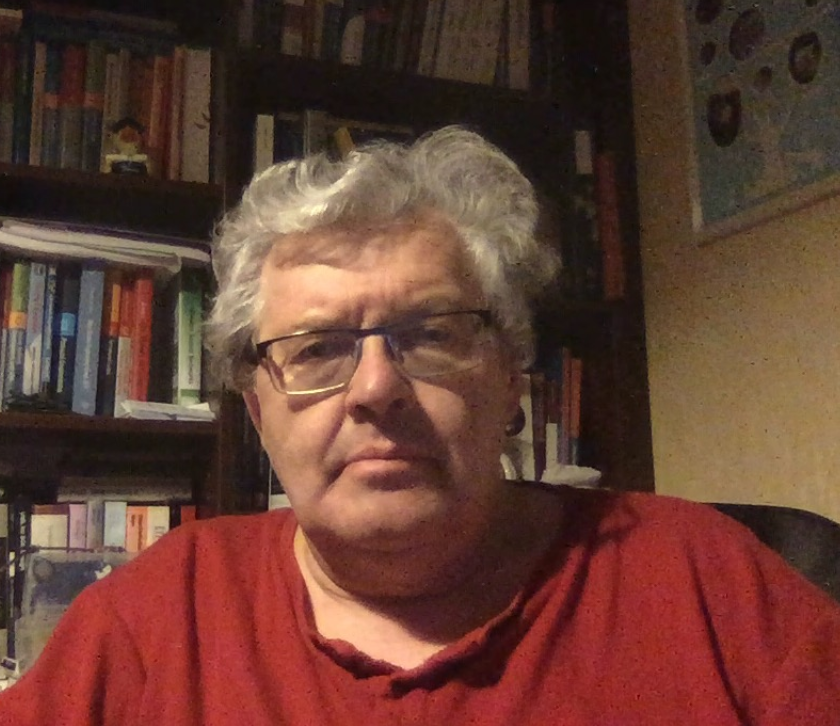
Conference theme:
Refinement-based Construction of Correct Distributed Algorithms
Abstract:
The verification of distributed algorithms is a challenge for formal techniques supported by tools, as model checkers and proof assistants. The difficulties, even for powerful tools, lie in the derivation of proofs of required properties, such as safety and eventuality, for distributed algorithms. Verification by construction can be achieved by using a formal framework in which models are constructed at different levels of abstraction; each level of abstraction is refined by the one below, and this refinement relationships is documented by an abstraction relation namely a gluing invariant. The highest levels of abstraction are used to express the required behavior in terms of the problem domain and the lowest level of abstraction corresponds to an implementation from which an efficient implementation can be derived automatically. We describe a methodology based on the general concept of refinement and used for developing distributed algorithms satisfying a given list of safety and liveness properties. We will show also how formal models can be used for producing distributed programs of a real programming language. The modelling methodology is defined in the Event-B modelling language using the IDE Rodin.
Speaker biography:
Dominique MERY is full professor of computing science at the University of Lorraine since 1993 and is teaching in the school of information technology Telecom Nancy. He is leading the research group MOSEL on formal methods and applications in the LORIA laboratory joint to CNRS, INRIA and University of Lorraine. He has been member of Institut Universitaire de France IUF (1995-2000) and is member of the IFIP WG 1.3 on foundations of specifications. His current scientific activities focus on proof-based development of distributed algorithms using the refinement, as well as modelling Cyber Physical Systems as medical devices. His research uses mainly state-based modelling languages as B/Event-B, TLA/TLA+ and techniques and tools. He has lead national projects as for instance RIMEL ANR project dealing with correct by construction distributed algorithms and IMPEX ANR project dealing with the integration of the explicit semantics in the proof-based development of software systems. Finally, his research explores the extension of the scope of discrete modelling techniques to handle the design and modelling of hybrid systems.
Paulo Batista
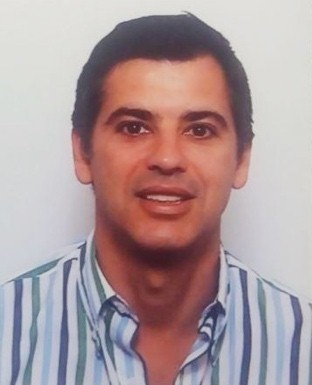
Conference theme:
The digitalisation project of the Lisbon Municipal Archives (2005-2020)
Abstract:
This research starts from the pilot project in Portugal of digitization of the AML's private work files, the documentation produced in greater dimension by the services of any municipality, the most certified and the one that originates the greatest number of requests for reproduction.
The reasons that determined the option for digital are the preservation of the originals, dissemination of information and quality of results. The objectives to be achieved are greater accessibility and speed in the circulation of files, standardization of procedures and greater efficiency of documentary circuits, decisively contributing to the development of integrated management in the Municipality of Lisbon, by improving access to information, allow greater exchange with clients, prevent document degradation and guarantee the transparency of archival procedures.
Despite the financial costs for the maintenance of the project, the danger of technological obsolescence, the network bandwidth and the storage capacity of the servers, digitization is presented as the answer to the needs of the AML / Municipality of Lisbon, with productivity gains, through the transparency of administrative acts, the de-bureaucratization of information and an increase in the quality of the response.
Speaker biography:
Dr. Paulo Batista is a research fellow at CIDEHUS.UÉ-Interdisciplinary Center for History, Cultures and Societies of the University of Évora. Portugal. He holds a PhD in Documentation (University of Alcalá, Madrid-UAH), an MS in Information Science and Documentation - Archival Studies (Faculty of Social Sciences and Humanities - Universidade Nova de Lisboa - FCSH-UNL), and an MA in Documentation (UAH). He also has a post-graduate degree in Information Society Law (Faculty of Law of the University of Lisbon) and Information and Documentation Science - Librarianship and Archival Studies (FCSH-UNL). He holds an undergraduate degree in History (Faculty of Letters of the University of Lisbon) and currently works as a Higher Technician in the Municipal Archive of Lisbon. His has lectured in the MS program in Information Science and Documentation at FCSH-UNL, and has held senior technician positions at the Portuguese Institute of Cultural Heritage, the Portuguese Institute of Architectural Heritage and the Torre do Tombo Archive. He has also worked as a researcher at the Center for the Study of History and Ancient Cartography of the Institute of Tropical Scientific Research. He has authored a wide variety of articles in Portuguese and foreigner journals, and has edited several books and papers at national and international meetings.
Toni Granollers
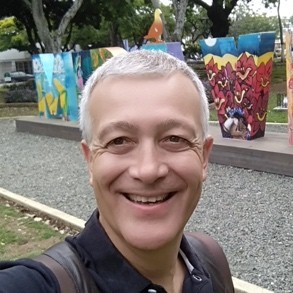
Conference theme:
Usability evaluation, coronavirus as an example
Abstract:
Since the end of the last century we have waged an unprecedented technological revolution, especially as regards ICT. Countless applications and devices have invaded the lives of all people around the world, regardless of age, sex, economic level or social class, the world has expanded and narrowed in equal parts thanks to the technological irruption. In this context, and although it is ignored by the general public, a prominent part of this success is due to the discipline of Human-Computer Interaction (HCI), which put the focus of attention on the people who were, and are , users of said technology. If the use is not easy it will be a failure.
From the HCI come the User Centered Design (UCD) methodologies which, as its name implies, place users at the center of all development. Although there are different UCD proposals, all of them share, and highlight, the Evaluation phase, moments in which the levels of usability and user experience (UX) of the developments are checked. There are different evaluation techniques, the so-called "Heuristic Evaluation" being one of the best known and used.
This conference will focus on a proposal for Heuristic Evaluation (by the author himself) and will show, as an example of this, an evaluation study carried out on a series of websites that offer relevant information related to the covid-19 pandemic (or, coronavirus), which is affecting us so much this year 2020.
Speaker biography:
Graduated in Computer Science from the Autonomous University of Barcelona and Doctor in Computer Science, specialty Human-Computer Interaction (HCI), from the University of Lleida.
After twelve years as a computer professional in various companies, since 2004 he is Professor at the Department of Computer Science and Industrial Engineering at the University of Lleida and joins the Research Group on Person-Computer Interaction and Data Integration (GRIHO) of the UdL, of which he is the current director. Member, as a member and of the board of directors, of the Association Interaction Person-Computer (AIPO) -the main entity at the Spanish and Latin American level in the field of HCI-, and also a member of the Special Interest Group on HCI (SIGCHI) of ACM and the Collaborative Network to support the teaching-learning processes in the area of Human-Computer Interaction at the Ibero-American level (HCI-collab). Co-author of the books "Design of interactive systems focused on the user" (2005), "New Trends on Human-Computer Interaction. Research, Development, New Tools and Methods ”(2007) and« Trends and new challenges on Teaching in Person-Computer Interaction »(2018), all of them on the subject of Person-Computer Interaction.
Apart from teaching at the UdL, he collaborates in the training of ICT and HCI topics in masters and doctoral programs at various universities - national and international - and for companies. Likewise, it coordinates knowledge and technology transfer agreements with various companies and entities.
Terry Ingoldsby
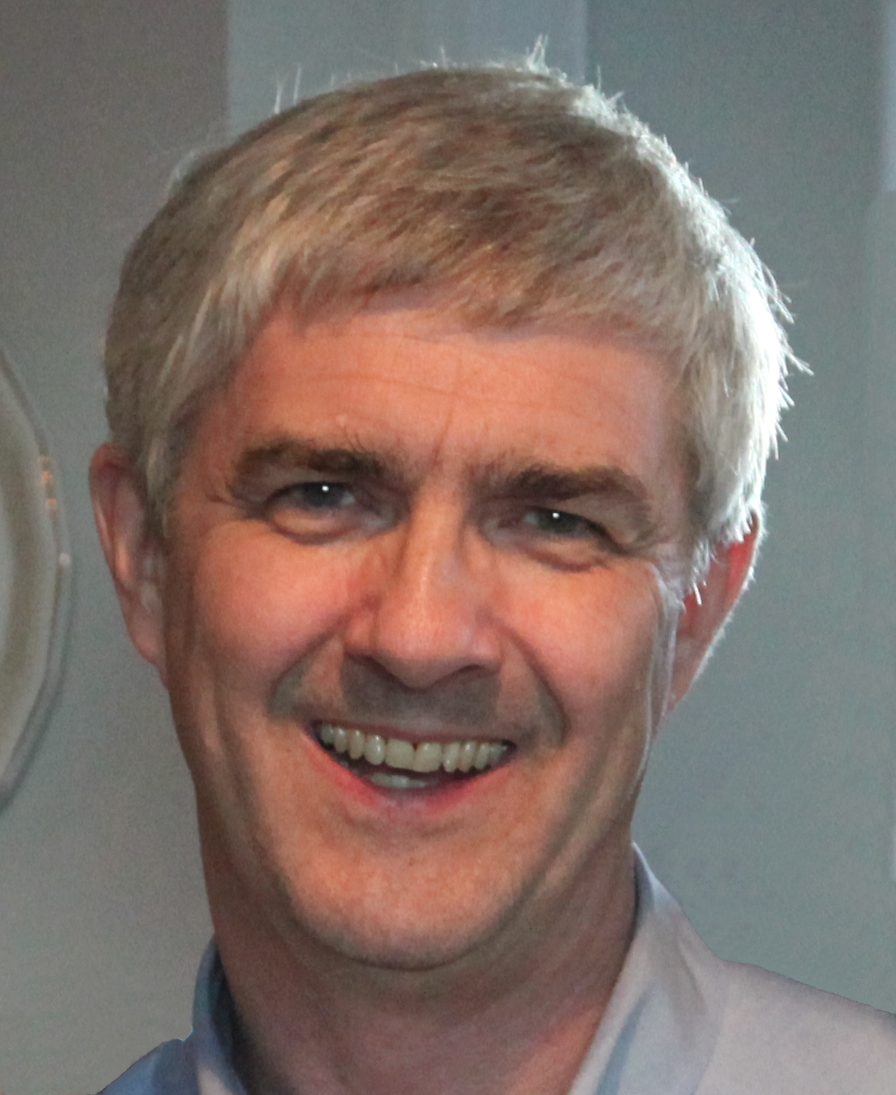
Conference theme:
Risky Times or Time for Risk?
Abstract:
Attack tree analysis is widely used to evaluate risk in critical aerospace applications. Although the technique is over 30 years old, because of its origins in the defense sector, it is not well known in commercial IT, OT and ICS environments. This session is a short tutorial on how to use attack trees to evaluate hostile risk in IT, OT and Industrial Control systems, and to assess the risk reduction that may be achieved through controls and countermeasures. A number of analytic techniques will be presented, including several recent developments. In particular, the effect of time on risk will be explored. Time is a factor often overlooked in commercial and industrial risk assessments. Defense engineers recognize that no system will withstand a determined attack indefinitely. Risk is a cumulative factor that increases with the passage of time. Attack tree analysis can reveal whether a system's risk will remain reasonable over the life of the system. Finally, reference will be made to a recent attack tree-based threat risk assessment at a major industrial facility and the organization's surprising reaction to the use of a new risk analysis technique (and what the speaker learned about getting buy-in from senior management).
Speaker biography:
Terrance Ingoldsby is the President of Amenaza Technologies Limited and the Chief Technical Architect for the SecurITree threat modeling software tool. His expertise is in the field of attack tree-based threat modeling, and he has consulted for and trained customers working in the sectors of aerospace, defense, commercial IT, manufacturing and critical infrastructure. Ingoldsby has 25+ years of experience working in cyber security and is a CISSP. He has a BSc (Physics) and a MSc (Computer Science). He speaks English and Spanish.
Sergio Martínez
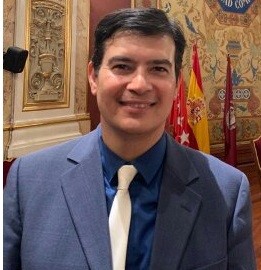
Conference theme:
Safe Smart Cities Methodology (SSCM)
Abstract:
The adoption of information technologies in the different residential areas, basic services companies, industries and government organizations, has led to the establishment of cities with capacities to improve their sustainability, socioeconomic benefits, respect for the environment and social rights. of the citizen, giving the city the adjective of Smart. Smart cities seem to address the efficiency that allows the optimal management of time, cost and energy in the provision of smart transport services, smart buildings and green infrastructure and a host of advances in order to achieve the development of the city in a way sustainable. However, there is still a lack of firm methodological approaches to safely implement such transformations. This could create risks to the most critical assets of cities, affecting sustainability, intelligence and government (Bayod, 2015). With the rise of new technologies and their adoption, some cities are considered smarter than others where most cities around the world have implemented at least some technology. For smart cities to remain at an optimal and sustainable level, the technological elements that make them up should consider the security of technological assets as a fundamental pillar and even manage it from its inception so that, in their normal transformation process, Smart cities maintain the standards that benefit the citizens who inhabit it. With the aim of minimizing the risks that there may be that may violate any of the rights acquired in any constitution, the right to privacy or the loss of availability of public or private services. In this research he proposes a methodology to create safe smart cities.
Speaker biography:
Dr. Sergio Martínez studied computer science at UNAM. In 1998 he graduated with an average of 9.3 and in 1999 he won first place in the XIV Thesis competition convened by ANFECA. Later, he studied a master's degree in UNAM in International Business Administration, graduating in 2003. Dr. Martínez acquired professional experience working in various transactional companies. He started his career at Mcafee México as a programmer. Later at Oracle de México as development consultant. He continued at Colgate Palmolive as an IT project leader. At the Canadian computer security company Entrust Technologies, he was manager of the Mexico and Caribbean consultancy. At the ABC Medical Center he was the Area Leader of new IT projects and finally at Continental Automotive Systems, as a Lotus Domino email specialist where he had an international assignment of one year in the headquarters of said company in Frankfurt, Germany. Dr. Martínez has also had a long career as a teacher of more than 11 years teaching undergraduate and master's degrees in public and private universities in Mexico such as UNAM, ITESM, LASALLE, UVM, ULA and in Spain at UCM and in the UNIR.
He has directed more than 30 master's and one doctoral thesis. He has also taught more than 100 subjects. He has been dean at the UNEMPI Virtual University. After years working in various transactional companies, in August 2009 he decided to enter the Tecnológico de Monterrey to study for a doctorate in Computer Science. On November 11, 2016, he graduated with an average of 9 at the ITESM Campus Estado de México with the thesis entitled: “VPD Method for computer security policies”. Obtaining the medal of academic merit.
Dr. Martínez decides to continue his studies and enters the postdoctorate at the Complutense University of Madrid in October 2017 thanks to the support of a postdoctoral scholarship awarded by SECTEI. There he joined the European H2020 RAMSES project from November 2017 to August 2018. As of September 2018, he works at the UCM on a second research project: CBR artificial intelligence applied to computer security for the automated detection, categorization and prediction of cyberattacks being a member of the GAIA artificial intelligence research group at the Complutense University of Madrid. Dr. Martínez has book publications, scientific journals in JCR (Q1) and book chapters.
Jorge Vidal
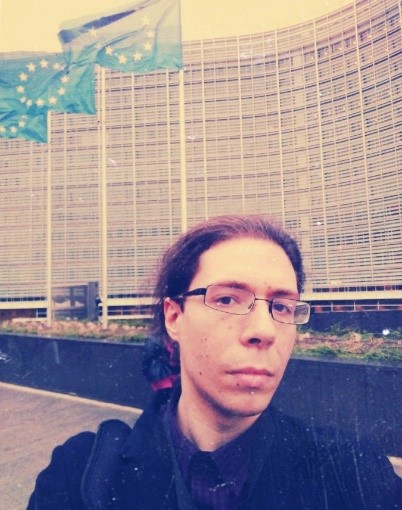
Conference theme:
Cyberspace as the fifth Battleground: Challenges and Opportunities
Abstract:
Information and Communication Technologies (ICT) have become the backbone of a nation's economic growth and prosperity, which is a fundamental resource on which all economic sectors depend. Being aware of this, the European Commission encouraged the appearance of laws and regulations (NIS (EU) 2016/1148, eiDAS (EU) 910/2014, GDPR (EU) 2016/679) focused on the protection of cyber assets and digital markets, while trying to guarantee the right of its citizens to privacy and data protection. In 2016 OTAN established cyberspace as the fifth military operational domain, equating it to the traditional domains: land, sea, air and space. This fact has led the European Defense Agency (EDA) to establish cyberspace as one of its four main areas of work, promoting EU military training in cyber defense, and auguring further progress with the constitution of the Permanent Structured Cooperation (PESCO) within the framework of the European Defense Fund (EDF). In addition, the European Commission has currently activated other types of direct military training initiatives, one of which is the European Defense Industrial Development Program (EDIDP) (EU) 2018/1092. But despite the efforts of different defense agencies, the adoption of cyberspace as the fifth battle domain is not without difficulties and technological gaps, many of them so far not properly addressed from a civil or dual perspective. Throughout the presentation, the most differentiating aspects between cyber defense and the protection of cyberspace at the civil level will be reviewed, reviewing its convergence with other areas of combat (electronic warfare, C2, ISR, etc.) and its current research needs. and development, covering from the emerging technological level to the new requirements in education and training of cyber commands.
Speaker biography:
Jorge Maestre Vidal is PhD. in Computer Science and Senior Specialist in cyber defence at Indra, being part of its Digital Labs division. He is the Technical Coordinator of the Indra’s solutions for Cyber Situational Awareness acquisition for supporting military decision-making, leading the related technical activities on National and International innovation programmes, like the EDA projects Cyber Defence Situation Awareness Package – Rapid Research Prototype (CySAP-RRP) (EDA 16.CAT.OP.078.) or Generation of Data Sets for Validation of Cyber Defence Tools (Cat. B FC B-1508-GP). He recently participated in the European projects SELFNET (H2020-ICT-2014- 2/671672) and RAMSES (H2020-FCT-04-2015/700326), currently leading the Indra’s Digital Lab participation in the Full Spectrum Situational Awareness (T-SHARK) programme of SPARTA (H2020-FCT-2015/83089). Among others, he is active collaborator of the 5G-PPP Security WG, the Cyber Research & Technology (R&T) Ad Hoc Working Group (AHWG) and the NATO NIAG SG-251.
Marco Sotelo
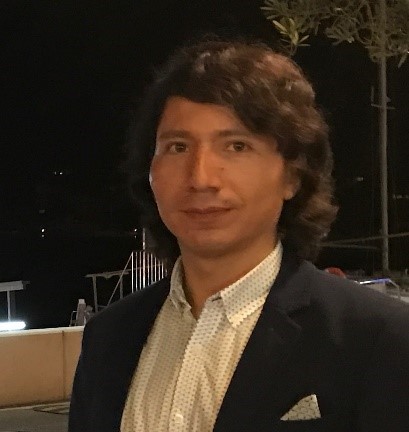
Conference theme:
Towards multi-domain Zero-touch administration in 5G networks
Abstract:
The fifth generation of mobile networks (5G) is in the initial deployment phase in different regions of the world. This communications platform aims to meet performance indicators far superior to those considered in previous generations of mobile telephony, establishing the operational platform for increasingly complex applications and use cases. 5G networks today constitute a complex ecosystem whose technological enablers, such as software-defined networks (SDN), network function virtualization (NFV), network segmentation (slicing), and artificial intelligence applied to function orchestration in multiple domains they seek to minimize the manual intervention of human agents, known as “zero touch” administration. End-to-end network automation is one of the most complex requirements that must be met by Digital Service Providers (DSP) for network services to be delivered on time, in compliance with sustainability criteria and with a significant reduction in costs. operational and capital. According to the European Telecommunications Standards Institute (ETSI), zero-touch administration seeks to develop self-organization capabilities in complex multi-domain environments by designing new end-to-end architectures and artificial intelligence-based management frameworks. The presentation will review the most significant milestones for the implementation of 5G. Likewise, the role of its most important technological enablers will be discussed considering the level of maturity that the fifth generation of mobile networks has developed in its different stages of development, thus allowing its critical assessment from a future perspective.
Speaker biography:
Marco Antonio Sotelo Monge is a Doctor in Computer Engineering from the Complutense University of Madrid (2018), where he has worked as a researcher in the Department of Artificial Intelligence and Software Engineering. He is currently a researcher attached to the Group of Intelligent Systems and Telematics Group of the University of Murcia (UMU). His main research areas include 5G networks, Information Security, SDN / NFV and Artificial Intelligence; and has disseminated the results of its research activity in specialized scientific journals and international conferences. He is also a reviewer for international magazines published by various publishers. Marco Antonio also has professional experience in the areas of information technology and quality management in education, activities that have been combined with teaching since 2007 in Peru and in Spain since 2016. In recent years, he has participated in projects Research Programs SELFNET (H2020-ICT-2014-2 / 671672) and RAMSES (H2020-FCT-04-2015 / 700326) funded by the Horizon 2020 Program of the European Commission.







